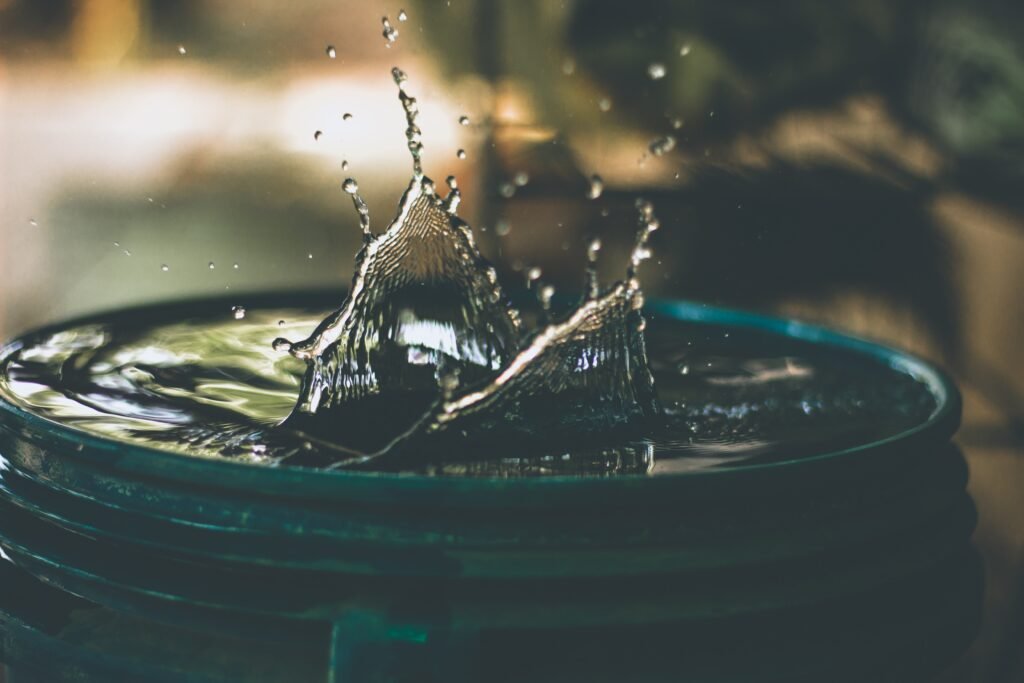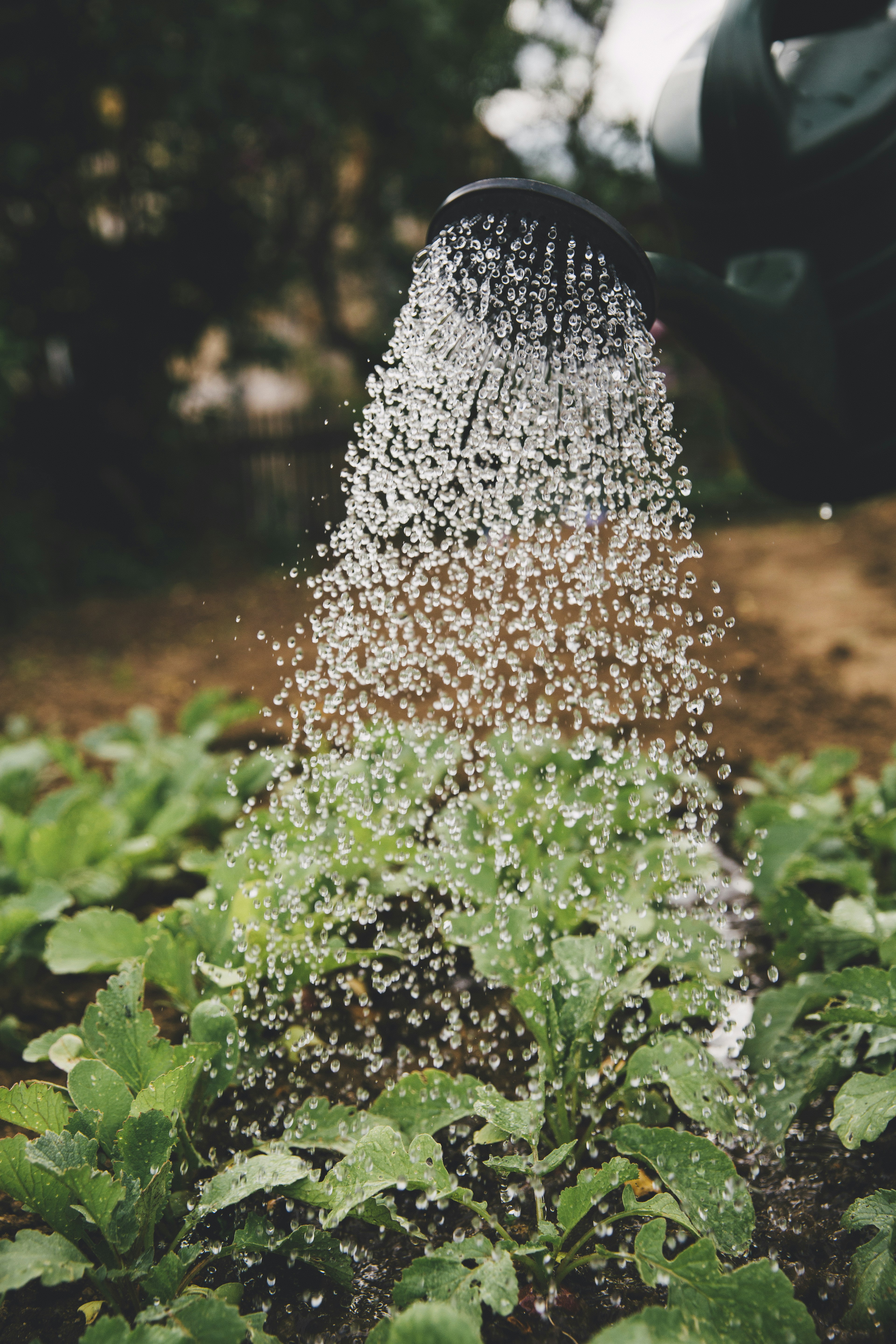If you’ve ever wondered whether water faucet filters are worth investing in, then look no further. These compact and handy devices attach directly to your standard water faucet, giving you an accessible way to filter out impurities, contaminants, and odors from your tap water. Using various filtration methods, such as activated carbon and ceramic, these filters can remove particles, chlorine, heavy metals, sediment, and other potentially harmful substances. The result? Cleaner, better-tasting water that is suitable for drinking, cooking, and other household activities. And the best part? They’re easy to install, require minimal maintenance, and won’t break the bank, making them an affordable solution for improving your water supply without the need for complex plumbing modifications. So, are faucet water filters worth it? Let’s find out.

1. What are faucet water filters?
1.1 Definition
Faucet water filters are compact and convenient devices that attach directly to a standard water faucet to improve the quality and safety of tap water. These filters use various filtration methods, such as activated carbon, ceramic, or multi-layered membranes, to remove impurities, contaminants, and odors from the water before it is consumed or used for various purposes.
1.2 Purpose
The purpose of faucet water filters is to provide a convenient and accessible way to filter out particles, chlorine, heavy metals, sediment, and other potentially harmful substances from tap water. By doing so, these filters ensure that the water you use for drinking, cooking, and other household activities is cleaner, better-tasting, and safer to consume.
1.3 Types of faucet water filters
There are several types of faucet water filters available in the market. Some common types include:
-
Basic faucet water filters: These are the most common type of faucet water filters and are usually affordable. They use activated carbon to remove impurities and improve taste.
-
Advanced faucet water filters: These filters are equipped with additional filtration mechanisms, such as ceramic or multi-layered membranes, to provide enhanced filtration and remove a wider range of contaminants.
-
High-capacity faucet water filters: These filters have larger capacities and longer filter lifespans, making them suitable for households with higher water consumption.
-
Smart faucet water filters: These filters have built-in sensors or indicators that monitor filter life and water quality, providing real-time feedback and alerts when it’s time to replace the filter.
-
Reverse osmosis faucet water filters: These filters use a more intensive filtration process, known as reverse osmosis, to remove a wide range of contaminants, including dissolved solids and heavy metals.
Choosing the right type of faucet water filter depends on your specific needs, budget, and the quality of your water supply.
2. Benefits of using faucet water filters
2.1 Improved water quality
One of the primary benefits of using faucet water filters is the improvement in water quality. These filters effectively remove impurities, such as sediment, chlorine, and heavy metals, that may be present in tap water. The result is cleaner and safer water for drinking, cooking, and other household activities.
2.2 Removal of impurities
Faucet water filters are designed to remove a wide range of impurities from tap water. This includes particles, sediment, chlorine, volatile organic compounds (VOCs), and various contaminants that may be present in the water supply. By removing these impurities, faucet water filters help ensure that the water you consume is free from potentially harmful substances.
2.3 Reduction of odors and bad taste
Another benefit of using faucet water filters is the reduction of odors and bad taste in tap water. Chlorine, which is commonly used as a disinfectant in municipal water treatment, can give tap water an unpleasant taste and odor. Faucet water filters effectively remove chlorine and other substances that can affect the taste and odor of water, resulting in better-tasting and more enjoyable drinking water.
2.4 Cost-effectiveness
Faucet water filters offer a cost-effective solution for improving the quality of your water supply. In comparison to other water filtration methods, such as under-sink filters or whole-house filters, faucet water filters are generally more affordable, both in terms of upfront costs and maintenance. They provide a budget-friendly option for individuals and households seeking to enhance their water quality without breaking the bank.
2.5 Convenience and accessibility
One of the key advantages of faucet water filters is their convenience and accessibility. These filters are compact and easy to install, requiring minimal space and no complex plumbing modifications. They attach directly to a standard water faucet, allowing for quick and easy access to filtered water whenever you need it. Faucet water filters are also portable, making them suitable for individuals who move frequently or for use in temporary living situations.
2.6 Minimal maintenance
Maintaining a faucet water filter is relatively simple and requires minimal effort. Most filters have a lifespan of several months before they need to be replaced, and the replacement process is usually straightforward. Additionally, many faucet water filters have indicator lights or other mechanisms that alert you when it’s time to replace the filter, ensuring that your water stays consistently filtered.
2.7 Environmental impact
Using a faucet water filter can have a positive environmental impact. By filtering tap water at the point of use, you reduce the need to purchase and dispose of single-use plastic water bottles. This helps minimize plastic waste and reduce the overall carbon footprint associated with the production and transportation of bottled water.
3. Factors to consider before purchasing a faucet water filter
3.1 Water quality
It is important to consider the quality of your water supply before purchasing a faucet water filter. Conducting a water quality test can help identify specific contaminants, such as chlorine, heavy metals, or volatile organic compounds, that may be present in your tap water. This information can guide you in choosing a faucet water filter that effectively targets and removes these contaminants.
3.2 Budget
Consider your budget when selecting a faucet water filter. Prices can vary depending on the type of filter, the level of filtration, and additional features such as smart sensors or reverse osmosis capabilities. Determine the maximum amount you are willing to spend and look for options that align with your budget while still meeting your filtration needs.
3.3 Available space
Evaluate the available space around your faucet before purchasing a filter. Some filters may require additional clearance or have larger dimensions, which may not be suitable for smaller sinks or countertops. Measure the space and ensure that the filter you choose will fit comfortably in your chosen location.
3.4 Filter lifespan
Check the filter lifespan of the faucet water filter you are considering. Different filters have varying lifespans, with some lasting a few months and others lasting up to a year. Consider your water consumption habits and choose a filter that will last an appropriate amount of time before needing replacement.
3.5 Filter replacement cost
In addition to the filter lifespan, also consider the cost of replacement filters. These replacement filters will need to be purchased periodically to maintain the effectiveness of the filter. Compare the prices of replacement filters for different models and factor this cost into your budget considerations.
3.6 Compatibility with faucet
Ensure that the faucet water filter you choose is compatible with your faucet. Most filters are designed to fit standard faucets, but it’s always a good idea to double-check the compatibility before making a purchase. Consider the faucet style, size, and any potential adapters or attachments that may be required for the filter to properly fit.
3.7 Water flow rate
Consider the water flow rate of the faucet water filter. Some filters may have a slower flow rate, which can be a consideration if you rely heavily on a high water flow for specific tasks, such as filling large pots or containers. Evaluate the flow rate of different filters and choose one that meets your needs without compromising functionality.
4. Comparison with other water filtration methods
4.1 Pitcher filters
Pitcher filters are a popular alternative to faucet water filters. These filters consist of a pitcher with an attached filter, allowing you to pour tap water into the pitcher and have it pass through the filter before being ready for consumption. Pitcher filters are generally more affordable upfront, but they have a lower filter capacity and may not be as convenient for larger households or frequent water consumption.
4.2 Under-sink filters
Under-sink filters are installed beneath the sink and connect to the existing water supply. These filters generally provide a higher level of filtration and have larger filter capacities compared to faucet water filters. However, they require more complex installation and may not be suitable for individuals or households who do not own their property or want to avoid plumbing modifications.
4.3 Whole house filters
Whole house filters are installed at the main water supply point of your home, providing filtered water to all faucets and appliances. These filters offer comprehensive water filtration for the entire household, removing contaminants from all water sources. However, whole house filters are more expensive to purchase and install, making them a significant investment for homeowners.
4.4 Bottled water
Bottled water is another alternative to faucet water filters. However, it is important to note that relying on bottled water can be costly, generate plastic waste, and have a higher carbon footprint. Using a faucet water filter provides a more sustainable and cost-effective solution for accessing filtered water conveniently at home.

5. Potential limitations of faucet water filters
5.1 Inability to remove all contaminants
While faucet water filters are effective at removing many common contaminants, it is important to note that they may not remove all types of contaminants. Some filters may not be capable of removing certain volatile organic compounds (VOCs), pesticides, or microorganisms. If you have specific concerns about certain contaminants, it may be necessary to consider alternative filtration methods or additional water treatment options.
5.2 Limited filter lifespan
Faucet water filters have a limited filter lifespan, which means they will need to be replaced periodically to maintain their effectiveness. The frequency of filter replacement will depend on the specific filter model and your water consumption. It’s important to factor in the ongoing cost of replacement filters when considering the overall cost-effectiveness of a faucet water filter.
5.3 Initial cost
While faucet water filters are generally more affordable than other water filtration methods, there is still an initial cost to consider. Depending on the type and features of the filter, prices can range from relatively inexpensive to more expensive options. Consider your budget and the long-term benefits of using a faucet water filter to determine if the initial cost is worth it for you.
5.4 Reduction in water flow rate
Some faucet water filters may result in a reduction in water flow rate. This can be a concern for individuals who rely on high water flow for specific tasks, such as filling large pots or containers quickly. While the reduction in water flow may not be significant for everyday use, it is important to consider your specific needs and determine if the potential reduction in flow rate is acceptable for you.
5.5 Change in filter taste over time
Over time, the taste and effectiveness of a faucet water filter may diminish. Filters can become clogged with particles and contaminants, leading to a change in taste and potentially reduced filtration performance. Regularly replacing the filter in accordance with the manufacturer’s recommendations can help maintain optimal taste and filtration quality.
6. When are faucet water filters worth it?
6.1 High levels of chlorine in tap water
If your tap water has a high concentration of chlorine and you find the taste and odor unpleasant, a faucet water filter can help improve the quality of your drinking water. These filters effectively remove chlorine, resulting in cleaner and better-tasting water.
6.2 Suspicion of lead or heavy metal contamination
If you are concerned about the presence of lead or other heavy metals in your tap water, a faucet water filter can be a beneficial investment. Many faucet water filters are designed to remove lead and heavy metals, providing an extra layer of protection for you and your family.
6.3 Frequent consumption of tap water
If you and your household frequently consume tap water for drinking, cooking, and other daily activities, a faucet water filter can provide a convenient and cost-effective means of accessing cleaner and better-tasting water. The accessibility of filtered water directly from your faucet can help reduce the reliance on bottled water and the associated costs and waste.
6.4 Desire for better-tasting water
If you simply desire better-tasting water, a faucet water filter can meet your needs. These filters effectively remove impurities and contaminants that can affect the taste and odor of tap water, resulting in an improved drinking experience.
6.5 Limited budget for water filtration
If you have a limited budget for water filtration, a faucet water filter can be a more affordable option compared to other filtration methods, such as under-sink or whole house filters. Faucet water filters provide a cost-effective solution for enhancing the quality of your water supply without the need for complex installation or significant upfront costs.
7. Alternatives to faucet water filters
7.1 Bottled water
Bottled water is a common alternative to faucet water filters. However, relying on bottled water can be costly, generate plastic waste, and contribute to environmental pollution. It is also important to note that the quality of bottled water may not always be guaranteed. If you choose to use bottled water, opt for reputable brands and consider the environmental impact of single-use plastic bottles.
7.2 Pitcher filters
Pitcher filters are an alternative to faucet water filters, offering a simple and affordable method of filtering tap water. These filters consist of a pitcher with an attached filter, allowing you to fill the pitcher with tap water and have it pass through the filter. Pitcher filters are portable and can be placed in the refrigerator for cold, filtered water. However, they have a limited filter capacity compared to faucet water filters and may not be as convenient for larger households.
7.3 Under-sink filters
Under-sink filters provide a comprehensive water filtration solution by connecting directly to the water supply beneath the sink. These filters offer higher levels of filtration and larger filter capacities compared to faucet water filters. However, they require more complex installation and may not be suitable for individuals or households who do not want to make plumbing modifications.
7.4 Whole house filters
Whole house filters provide a comprehensive water filtration solution for the entire household. These filters are installed at the main water supply point of the home and filter water at the source, providing clean and filtered water from all faucets and appliances. However, whole house filters are more expensive to purchase and install, making them a significant investment for homeowners.
8. How to choose the right faucet water filter
8.1 Assess your water quality
Before purchasing a faucet water filter, assess the quality of your water supply. Conduct a water quality test or research the local water quality reports to identify specific contaminants that may be present. This information will help you select a faucet water filter that effectively targets and removes these contaminants.
8.2 Determine your budget
Consider your budget when choosing a faucet water filter. Determine the maximum amount you are willing to spend and look for options within that price range. Remember to also consider the ongoing cost of replacement filters when calculating the long-term cost-effectiveness of the filter.
8.3 Consider filter lifespan and replacement cost
Check the filter lifespan and the cost of replacement filters for the faucet water filter you are considering. Longer filter lifespans can reduce the frequency of filter replacements, while affordable replacement filters help keep maintenance costs reasonable.
8.4 Check compatibility with your faucet
Ensure that the faucet water filter you choose is compatible with your specific faucet. Most filters are designed to fit standard faucets, but it’s always a good idea to double-check the compatibility before making a purchase. Consider factors such as faucet style, size, and any potential adapters or attachments that may be required for proper installation.
8.5 Evaluate water flow rate
Evaluate the water flow rate of the faucet water filter. Some filters may result in a slower flow rate, which can be a concern if you rely heavily on a high water flow for specific tasks. Ensure that the filter you choose provides a flow rate that meets your needs without compromising daily functionality.
8.6 Read customer reviews and ratings
Before finalizing your decision, read customer reviews and ratings of the faucet water filter you are considering. This can provide insights into the performance, reliability, and overall satisfaction of other users. Look for filters that have positive feedback and consistently meet the needs of customers.
9. Popular faucet water filter brands
9.1 Brita
Brita is a well-known brand in the water filtration industry, offering a wide range of faucet water filters. Their filters are designed to effectively remove impurities and improve the taste of tap water. Brita filters are known for their affordability, ease of use, and availability of replacement filters.
9.2 PUR
PUR is another popular brand that specializes in faucet water filters. Their filters utilize multiple layers of filtration to remove contaminants and improve water quality. PUR filters are known for their long filter lifespan and the availability of different filter options to suit varying water quality needs.
9.3 Culligan
Culligan is a trusted brand that offers faucet water filters for residential use. Their filters use advanced technology to remove impurities and reduce odors, providing better-tasting water. Culligan filters are known for their durability and reliable performance.
9.4 Aquasana
Aquasana is a reputable brand that provides a range of water filtration solutions, including faucet water filters. Their filters are designed to remove a wide range of contaminants, including lead, chlorine, and VOCs. Aquasana filters are known for their high filtration capabilities and durable construction.
9.5 APEC Water Systems
APEC Water Systems is known for its high-quality faucet water filter systems. Their filters use reverse osmosis technology to effectively remove impurities, including bacteria, viruses, fluoride, and heavy metals. APEC Water Systems filters are highly regarded for their advanced filtration capabilities and long-lasting performance.
10. Conclusion
10.1 Summary of benefits
Faucet water filters provide a convenient and accessible way to improve the quality and safety of tap water. They effectively remove impurities, contaminants, and odors, resulting in cleaner and better-tasting water. With benefits such as improved water quality, removal of impurities, cost-effectiveness, convenience, and minimal maintenance, faucet water filters offer a practical solution for individuals and households looking to enhance their water supply.
10.2 Considerations before purchase
Before purchasing a faucet water filter, it is important to consider factors such as water quality, budget, available space, filter lifespan, replacement cost, compatibility with your faucet, and water flow rate. These considerations will help you choose the right faucet water filter that aligns with your specific needs and preferences.
10.3 Personal preferences and needs
Ultimately, the decision to invest in a faucet water filter depends on your personal preferences and needs. If you have high levels of chlorine in your tap water, suspicion of lead or heavy metal contamination, frequent consumption of tap water, a desire for better-tasting water, or a limited budget for water filtration, a faucet water filter may be worth it for you. Evaluate the alternatives to faucet water filters and choose the option that best suits your individual circumstances.


